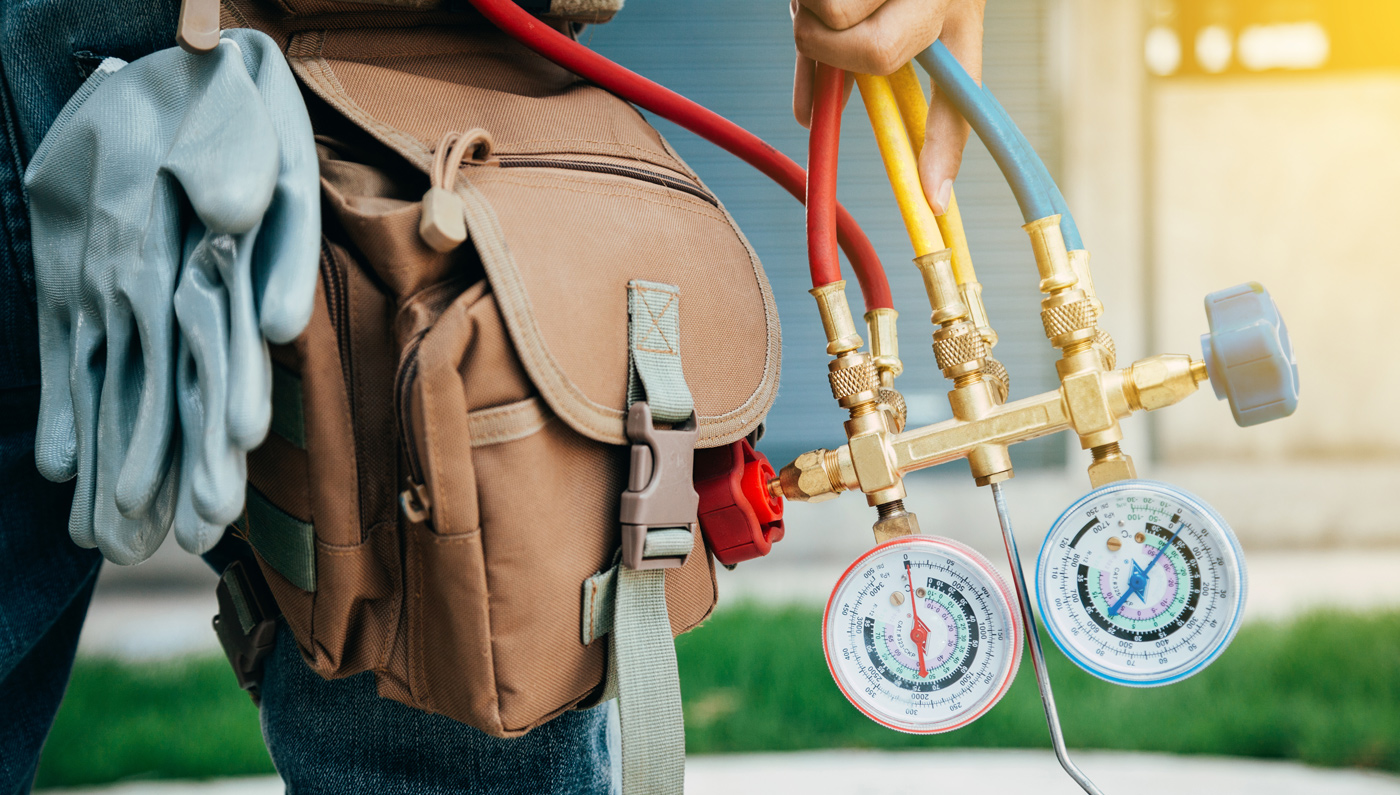The decision of whether to replace an air conditioner or repair your existing a/c unit it is a big one that affects your comfort, safety, and finances. Either way, 0ne thing is certain: Texas homeowners want to know their AC units are ready for a long, hot summer of work.
Whether you’re trying to keep up with broken parts and regular repairs or just looking to save money on your electric bill now is the time to weigh the costs and benefits to come to the right decision – and it may not be what you think. You may have other considerations, but these 10 topics should always be on your list.
1. HVAC Equipment Age
HVAC equipment manufacturers say central air conditioners should last 15-20 years, but don’t count on that in North Texas. AC units here work harder and longer than in northern and midwestern climates, so you should expect 8-15 years when the equipment is properly installed and maintained. The original quality, capacity and efficiency of the air conditioner are major factors.
Wear and tear happen with all mechanical equipment, but regular maintenance will help ensure you get the most for your investment in terms of efficient operation and longevity.
Refrigerant is a major factor regarding air conditioning equipment age. Most AC units manufactured prior to January 2010 used R-22 refrigerant (Freon), but since that date no new equipment can be manufactured that use R-22 refrigerant. The more environmentally-friendly R-410A (also known as Puron) now is the standard.
By international treaty and US law, manufacture of R-22 has been reduced steadily since 2010 and will cease in altogether in 2020. Then, only recycled R-22 refrigerant will be available. As R-22 refrigerant production has decreased prices have reached $100 per pound – and more – and are certain to increase.
If your air conditioner develops a refrigerant leak and requires more Freon, you can expect the cost will be measured in hundreds or even thousands of dollars for refrigerant alone.
2. Frequency of Repairs
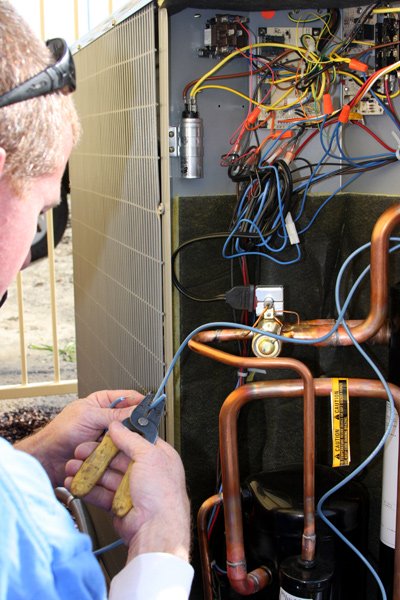 While it’s normal to need air conditioning repairs once in a while, constant repairs quickly add up for homeowners and are a warning sign of possibly bigger problems to come. Far too many homeowners ignore their HVAC equipment as long as it is working, failing to invest in routine maintenance.
While it’s normal to need air conditioning repairs once in a while, constant repairs quickly add up for homeowners and are a warning sign of possibly bigger problems to come. Far too many homeowners ignore their HVAC equipment as long as it is working, failing to invest in routine maintenance.
Think of routine maintenance, of annual AC tune-ups, as physical exams for your air conditioner. AC technicians can spot small problems and fix them before they become big problems. For example, a bad AC capacitor is a quick and inexpensive fix. If undetected and not addressed, a bad capacitor could lead to compressor failure, which is a much more expensive repair that will cost thousands of dollars.
Quality equipment properly installed and maintained should not require significant investment in repairs for the first 5-10 years. If you are paying too much to keep your AC unit running, or are struggling to keep up with frequent breakdowns, it may be less expensive to replace your air conditioner instead of constantly repairing it.
Don’t know how to choose new central air conditioning equipment? Check out our article about how to choose a central air conditioner for your home.
3. Long-term Vs. Short-term Costs to Replace an Air Conditioner
Sometimes the cost to fix something is higher than the cost to replace it. For example, replacing a compressor in the central air system will cost $1,500 – $3,000, installed, depending on equipment size.
When faced with making expensive repairs like this it’s important to balance the short-term cost (say, the price of a new compressor) with the long-term sustainability of your AC unit. An older air conditioner (8-15 years) that is wearing down generally is not worth keeping when faced with a big repair bill.
Newer AC units in good condition shouldn’t need to be replaced and may have factory warranty coverage remaining. When the cost to repair would be in the range of 25-50 percent of the cost to replace an air conditioner, the benefits and reduced long-term costs are likely to outweigh the short-term savings.
4. Your Energy Bills Keep Increasing
There are several reasons why you might see higher energy bills, including rising utility rates and increased usage. But if your electric company is not raising your rates and you find yourself paying more, you should make sure your air conditioner is working right.
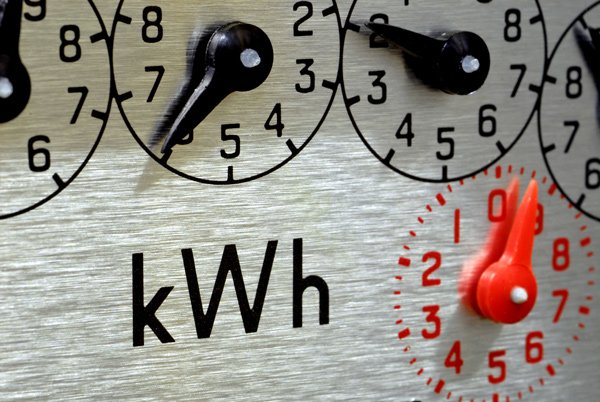 Any use of electricity keeps the meter turning, but your central HVAC system can be a serious energy hog. EnergyStar.gov says in the average American home cooling and heating account for 42% of total energy bills. In the hot North Texas climate, air conditioners account for a far higher percentage than the national average.
Any use of electricity keeps the meter turning, but your central HVAC system can be a serious energy hog. EnergyStar.gov says in the average American home cooling and heating account for 42% of total energy bills. In the hot North Texas climate, air conditioners account for a far higher percentage than the national average.
Air conditioners lose efficiency over time from wear and tear. Replacing broken parts may help keep them running, but an inefficient system will use a huge amount of electricity and always be unnecessarily costly.
The seasonal energy efficiency rating (SEER) is your guide to efficiency – the higher the number the more efficient the air conditioner. This easy-to-use SEER savings calculator shows the difference in dollars. If your current AC unit is 5-10 years old, it is likely is not operating at its original SEER rating.
5. Air Conditioner Runs Constantly or Shuts Off Too Soon
On the hottest North Texas days air conditioner don’t get a lot of rest, but they shouldn’t run constantly. There are a number of reasons this may happen, all of which require immediate attention.
A dirty or frozen evaporator coil will impede cooling. For example, an under-sized air conditioner will struggle to keep up. Constant running reduces pressure in the evaporator (cooling) coil until it freezes. If you feel warm air coming from registers and the air conditioning is operating, shut it off and get an air conditioning technician on the job.
Clogged or restrictive air filters that don’t allow adequate air flow can reduce cooling by not allowing enough air flow over the coils. Low refrigerant or a faulty thermostat also could be the problem, as could a bad fan or blower motor.
6. Your House Is Excessively Dusty
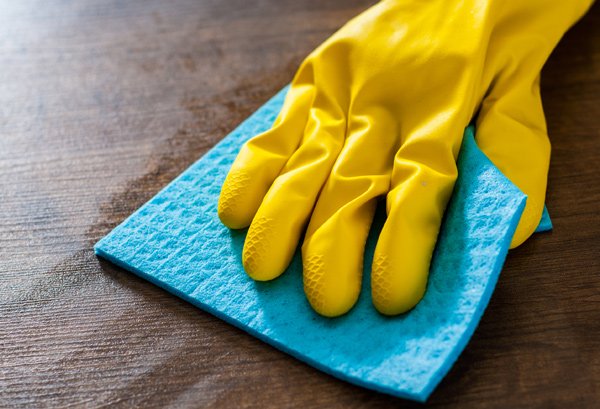 High amounts of dust that you see on furniture and in the air may be caused by improperly sealed HVAC ducts that distribute air throughout the house. A duct leak can let dusty attic air get into the HVAC system and move it from the attic to living spaces.
High amounts of dust that you see on furniture and in the air may be caused by improperly sealed HVAC ducts that distribute air throughout the house. A duct leak can let dusty attic air get into the HVAC system and move it from the attic to living spaces.
This is a fairly common problem that can be fixed by your AC technician. Here’s a bonus: fixing improperly sealed air ducts can increase your HVAC system’s efficiency as much as 30 percent.
Excessive dust also could indicate inadequate air filtration. One solution may be to upgrade your filters but be careful not to get carried away with a filter not designed for your system, which could result in inadequate air flow. See #9 below.
7. Strange Noises or Loud Operation
Older, 10 SEER, single-speed equipment can be quite noisy in normal operation, especially the compressor fans, which can sound as loud as a small helicopter when operating normally. Newer, higher-efficiency air conditioners run much quieter. You will know when you hear noises you shouldn’t be hearing.
A clicking or rattling sound is usually electrical, such as a relay or control. Loose compressor motor mounts produce a rattle. Loud banging noises usually indicate a broken part, such as a crankshaft, piston or rod.
A buzzing sound may be debris in the compressor unit being blown around by the fan, or a loose fan motor or blade. A squealing sound could be a blower motor or fan motor going bad. Popping sounds likely to come from the ducts and can indicate a bad seal.
Most importantly, a screaming, whistling or hissing sound indicates a refrigerant leak. Get a pro to take a look when you hear any of these sounds.
8. Air Conditioner Runs Too Hot or Too Cold
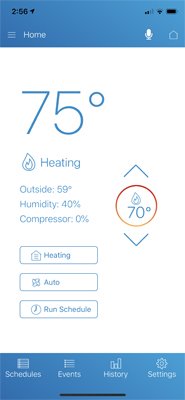 As discussed above, when your central air conditioning isn’t producing the temperature you set, you may have a problem with sizing, air flow or ductwork. The problem also may be in the electronic circuitry or result from a failing component, but don’t overlook the obvious – your thermostat.
As discussed above, when your central air conditioning isn’t producing the temperature you set, you may have a problem with sizing, air flow or ductwork. The problem also may be in the electronic circuitry or result from a failing component, but don’t overlook the obvious – your thermostat.
A thermostat that is not responding to commands or heating/cooling inputs is likely an easy fix. An AC tech can test it. If it is functioning properly it may be poorly placed. Thermostats placed near kitchens, air vents, doors, windows, or in direct sunlight are bound to produce bad results.
The best place to locate a thermostat is an interior wall away from all the places just mentioned. It should be in a living area where people spend time – which means a hallway is not an ideal location for a thermostat unless you spend a lot of time there.
A thermostat upgrade may help, too. WiFi thermostats take programmable thermostats a few notches higher, with the ability to monitor and control your air conditioning and heating from anywhere with internet connectivity. They also track usage so you can see visually how much energy you are using.
9. Indoor Air Quality
We have addressed indoor air quality indirectly above, but this topic is worth exploring further. For people who have allergies, asthma, and respiratory problems, or who just don’t like breathing in all the crud they see in the air when the sun shines in, this is a serious consideration.
The most common indoor air contaminants include:
- Dust
- Pet Dander
- Smoke
- Chemicals
- Mold and mildew
- Dust Mites
- Lint
- Fungus
- Cooking grease
- Bacteria
Each poses a threat to your family’s short-term and long-term health, which can be eliminated or mitigated with the proper indoor air quality HVAC equipment. Before investing you should see if the equipment can be integrated with your present central air and heating system, as well as the other repair or replace considerations above.
The basic air filter on central HVAC systems is the one-inch filter. The next level of protection is the four-inch box filter, which traps smaller particles, but requires a system with enough air pressure to force air through the filter without impeding air flow. If you change your own filters, this page explains the differences between MERV, MPR and FPR filter rating systems.
The most effective indoor air quality solution is a whole-house air cleaner that can trap airborne particles as small as .1 micron. Most indoor airborne contaminants measure .3 microns or less, so these systems can eliminate as much as 99.98% of all airborne contaminants. Many people who use such systems say they don’t have to dust their furniture.
When replacing an HVAC system you should consider an electronic whole-house air cleaner to go beyond cooling and make the air your family breathes truly clean and healthy.
10. How Long You Plan to Stay in Your Home
 Planning to move or retire? Those are important considerations whether you repair your a/c unit or install a new air conditioner. The apparent logic of going low on a new AC unit when you know you will be moving may not result in the best decision. Not going top-of-the-line makes sense, but don’t go low.
Planning to move or retire? Those are important considerations whether you repair your a/c unit or install a new air conditioner. The apparent logic of going low on a new AC unit when you know you will be moving may not result in the best decision. Not going top-of-the-line makes sense, but don’t go low.
Energysage.com says that adding a high-efficiency HVAC system to your home increases its value as much as 71% of the cost of the HVAC system. Check with a realtor for local market conditions.
Planning to retire and stay in your home makes an even more compelling case for a new high-efficiency HVAC system. You will have lower energy bills and the peace of mind and reliability of new equipment.
CONCLUSION
The decision to repair or replace an air conditioner is a health, comfort and financial decision. Remember to consider these 10 points as you decide.
- Equipment age
- Frequency of repairs
- Long-term vs. short-term costs
- Increasing electric bills
- The air conditioner runs constantly or shuts off too soon
- House is excessively dusty
- Strange noises or loud operation
- Runs too hot or too cold
- Mold and mildew
- How long you will stay in your home
Did we miss something? Please use the Contact form to let us know how we can improve this information.

